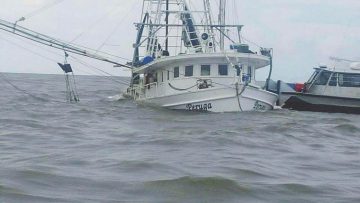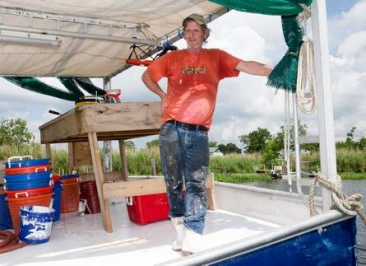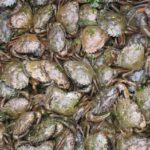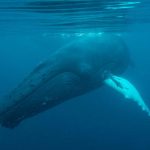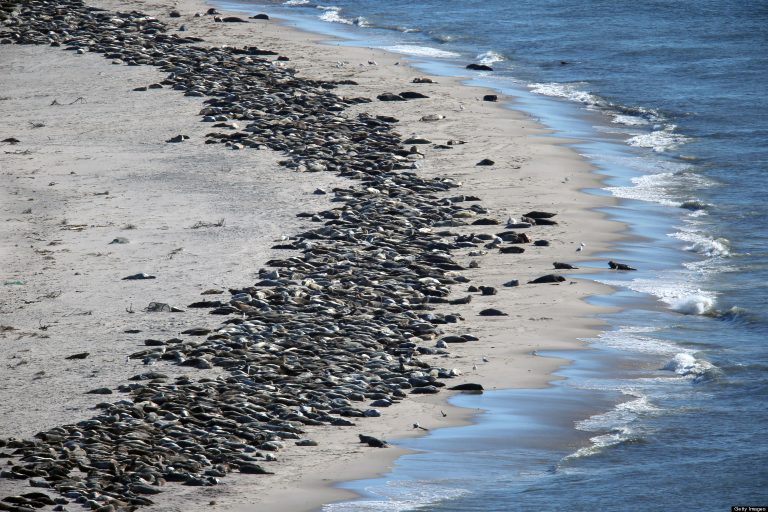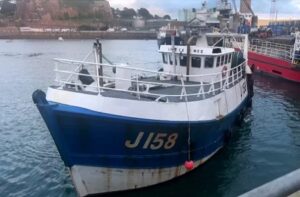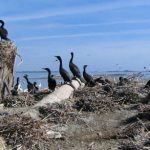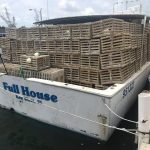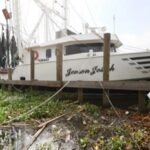Daily Archives: July 1, 2016
Suicide by job: Farmers, lumberjacks, fisherman top list
 Farmers, lumberjacks and fishermen kill themselves most often, according to a large new study of workers in the U.S. that showed enormous differences of suicide rates across jobs. Researchers found the highest suicide rates in manual laborers who work in isolation and face unsteady employment. High rates were also seen in carpenters, miners, electricians and people who work in construction. Mechanics were close behind. Dentists, doctors and other health care professionals had an 80 percent lower suicide rate than the farmers, fishermen and lumberjacks. The lowest rate was in teachers, educators and librarians. Read the rest here 18:41
Farmers, lumberjacks and fishermen kill themselves most often, according to a large new study of workers in the U.S. that showed enormous differences of suicide rates across jobs. Researchers found the highest suicide rates in manual laborers who work in isolation and face unsteady employment. High rates were also seen in carpenters, miners, electricians and people who work in construction. Mechanics were close behind. Dentists, doctors and other health care professionals had an 80 percent lower suicide rate than the farmers, fishermen and lumberjacks. The lowest rate was in teachers, educators and librarians. Read the rest here 18:41
Louisiana Wildlife and Fisheries commissioner dismissed for pushing red snapper resolution, she says
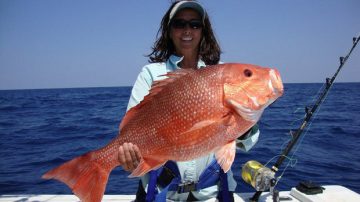 A former member of the Louisiana Wildlife and Fisheries Commission says she was dismissed from the regulatory board after putting forward a resolution that irked Louisiana Department of Wildlife and Fisheries Secretary Charlie Melancon. Julie Hebert, who was appointed to the commission in October 2015 by then-Gov. Bobby Jindal, said she had received support from Gov. John Bel Edwards to have her term extended, but that was yanked after Hebert proposed a resolution supporting state management of red snapper. The resolution passed the commission unanimously in April. An avid recreational angler, Hebert said she’s been frustrated for years by what she views as federal mismanagement of red snapper. Fisheries biologists say the biomass of Gulf red snapper is higher than it’s ever been, and yet, recreational anglers have been squeezed down to annual seasons that are shorter than two weeks in federal waters. Read the story here 16:25
A former member of the Louisiana Wildlife and Fisheries Commission says she was dismissed from the regulatory board after putting forward a resolution that irked Louisiana Department of Wildlife and Fisheries Secretary Charlie Melancon. Julie Hebert, who was appointed to the commission in October 2015 by then-Gov. Bobby Jindal, said she had received support from Gov. John Bel Edwards to have her term extended, but that was yanked after Hebert proposed a resolution supporting state management of red snapper. The resolution passed the commission unanimously in April. An avid recreational angler, Hebert said she’s been frustrated for years by what she views as federal mismanagement of red snapper. Fisheries biologists say the biomass of Gulf red snapper is higher than it’s ever been, and yet, recreational anglers have been squeezed down to annual seasons that are shorter than two weeks in federal waters. Read the story here 16:25
Fate of Apalachicola Bay, seafood industry, could hang on upcoming Supreme Court test
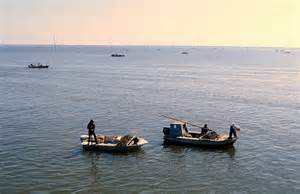 A special master of the U.S. Supreme Court has scheduled a trial for Oct. 31 in Florida’s lawsuit against Georgia over the river system they share — and with the latest in a series of droughts threatening, downstream users say the fate of the Apalachicola Bay could well be at stake. “That last drought we had — if we get just half of that, this bay may never be able to rebuild itself,” said Shannon Hartsfield, president of the Franklin County Seafood Workers’ Association. Florida sued Georgia in 2013, contending that Georgia’s overconsumption of water had reduced freshwater flows from the top of the Apalachicola-Chattahoochee-Flint River Basin, near metro Atlanta, to the Florida Panhandle, home of the Apalachicola Bay. Georgia denies it, arguing that Florida’s mismanagement of the bay is to blame for its woes. The Apalachicola Bay’s seafood industry was once a formidable economic driver for the region, producing 90 percent of Florida’s oysters and 10 percent of the nation’s supply. Its commercial and recreational fishing industries generated $200 million a year and supported 85 percent of the local population. But no more. Read the story here 13:17
A special master of the U.S. Supreme Court has scheduled a trial for Oct. 31 in Florida’s lawsuit against Georgia over the river system they share — and with the latest in a series of droughts threatening, downstream users say the fate of the Apalachicola Bay could well be at stake. “That last drought we had — if we get just half of that, this bay may never be able to rebuild itself,” said Shannon Hartsfield, president of the Franklin County Seafood Workers’ Association. Florida sued Georgia in 2013, contending that Georgia’s overconsumption of water had reduced freshwater flows from the top of the Apalachicola-Chattahoochee-Flint River Basin, near metro Atlanta, to the Florida Panhandle, home of the Apalachicola Bay. Georgia denies it, arguing that Florida’s mismanagement of the bay is to blame for its woes. The Apalachicola Bay’s seafood industry was once a formidable economic driver for the region, producing 90 percent of Florida’s oysters and 10 percent of the nation’s supply. Its commercial and recreational fishing industries generated $200 million a year and supported 85 percent of the local population. But no more. Read the story here 13:17
How the Trans-Pacific Partnership would benefit Washington’s seafood industry
 Existing tariffs — some as high as 20 percent in some TPP countries — are a big hurdle when we export, making it difficult to offer competitive prices. The TPP would eliminate tariffs on seafood exported by U.S. companies like ours.The TPP would eliminate tariffs on seafood exported by U.S. companies like ours. Just as important, the TPP seeks to raise environmental and labor standards. This is critical for the success of the industry because some foreign competitors operate under weaker fishery-management practices and have poor labor standards with underpaid, underprotected workers. The TPP addresses these issues with fully enforceable, high labor and environmental standards that combat illegal fishing and forced labor. Read the rest here 10:12
Existing tariffs — some as high as 20 percent in some TPP countries — are a big hurdle when we export, making it difficult to offer competitive prices. The TPP would eliminate tariffs on seafood exported by U.S. companies like ours.The TPP would eliminate tariffs on seafood exported by U.S. companies like ours. Just as important, the TPP seeks to raise environmental and labor standards. This is critical for the success of the industry because some foreign competitors operate under weaker fishery-management practices and have poor labor standards with underpaid, underprotected workers. The TPP addresses these issues with fully enforceable, high labor and environmental standards that combat illegal fishing and forced labor. Read the rest here 10:12
No buyer for Kuskokwim salmon, so no commercial salmon fishing
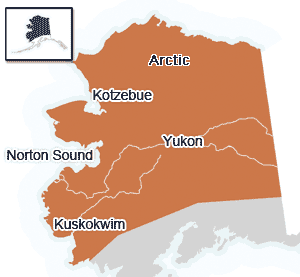 For the first time since 1960, for as long as the state has managed fisheries, a season’s worth of salmon will travel up rivers in the Kuskokwim Delta this year with no opportunity for local residents to catch them commercially. With no fish buyer signed up for the Kuskokwim region, the usual infusion of millions of dollars into this part of job-poor Southwestern Alaska isn’t happening. Nearly 450,000 salmon of various types have been caught on average commercially in recent years. Not this year. The state says those unharvested fish could overload spawning grounds and hurt future runs. The sole local buyer in recent years, a branch of Coastal Villages Region Fund, isn’t operating its $40 million fish processing plant in Platinum, on the Bering Sea coast in Southwest Alaska. Coastal Villages Seafoods isn’t buying any salmon from village residents at all. Read the rest here 09:05
For the first time since 1960, for as long as the state has managed fisheries, a season’s worth of salmon will travel up rivers in the Kuskokwim Delta this year with no opportunity for local residents to catch them commercially. With no fish buyer signed up for the Kuskokwim region, the usual infusion of millions of dollars into this part of job-poor Southwestern Alaska isn’t happening. Nearly 450,000 salmon of various types have been caught on average commercially in recent years. Not this year. The state says those unharvested fish could overload spawning grounds and hurt future runs. The sole local buyer in recent years, a branch of Coastal Villages Region Fund, isn’t operating its $40 million fish processing plant in Platinum, on the Bering Sea coast in Southwest Alaska. Coastal Villages Seafoods isn’t buying any salmon from village residents at all. Read the rest here 09:05
A Good News Report: Blue crab numbers rebounding
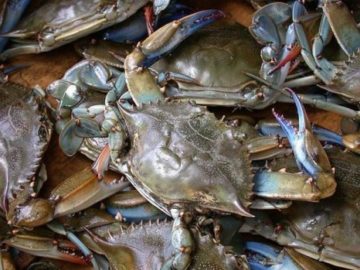 Blue crab population numbers have grown for the second straight year, especially for female crabs, but their numbers are still below target levels, a Chesapeake Bay Program report released Thursday said. The report also found that crabs were not being overfished, with about 50 million pounds taken last year over 2014’s 35.2 million pounds — the lowest harvest in 25 years. It urged regulators to stay the course and maintain crab management regulations in order to maintain the progress. Female crabs rebounded from a depleted 68 million in 2014 to 194 million at the beginning of the 2016 crabbing season, and juvenile crabs, those that will grow to harvestable size by the fall and grow into large crabs by next season, were also holding steady. Read the rest here 07:59
Blue crab population numbers have grown for the second straight year, especially for female crabs, but their numbers are still below target levels, a Chesapeake Bay Program report released Thursday said. The report also found that crabs were not being overfished, with about 50 million pounds taken last year over 2014’s 35.2 million pounds — the lowest harvest in 25 years. It urged regulators to stay the course and maintain crab management regulations in order to maintain the progress. Female crabs rebounded from a depleted 68 million in 2014 to 194 million at the beginning of the 2016 crabbing season, and juvenile crabs, those that will grow to harvestable size by the fall and grow into large crabs by next season, were also holding steady. Read the rest here 07:59






